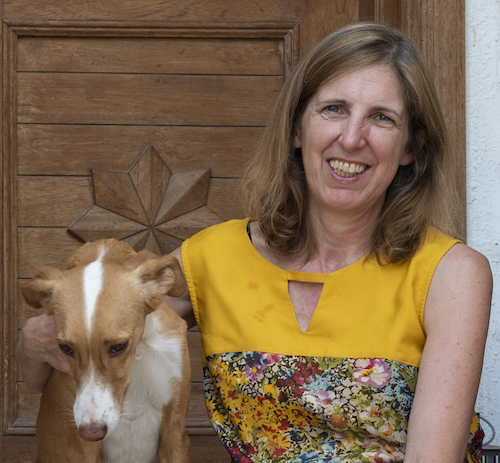Love, Marriage, and Special Needs

Tomorrow is Valentine’s Day, a holiday devoted to the symbols of love…chocolates and flowers and diamonds. Maggi Gale goes beyond symbols to the very heart of love in this guest post in her look at how to love when you and your spouse respond differently to a child’s special needs.
Love is patient, love is kind.
It does not envy, it does not boast, it is not proud…
Beautiful poetry for Valentines Day? Yes, but much more, too. It’s a demanding definition of practical love.
But how can anyone live this way
in the home,
in marriage,
with the extra stress of special needs parenting thrown in on top?
A few general differences in dealing with stress between men and women are worth taking into account. Of course we are all unique, and we don’t always fall into neat categories, but as Psychology Today points out, under stress men and women tend to react differently. Men tend to operate in the fight or flight mode, whilst women normally tend and befriend.
Marriage and Special Needs Stress Responses
I don’t know how true this for other people, but it was certainly true for us when we first heard the news that our daughter was EA/TEF. For my husband, fight took the form of frenetic activity. He was arranging this and organizing that, as if he was fighting the very very diagnosis itself. And his flight was … walking. This same man, who has had a lifelong dislike of walking anywhere, suddenly couldn’t keep still. He walked everywhere, until his trousers began to hang off him, as he processed the stress and shock of preceding weeks.
Meanwhile, I was left, of course, holding the baby. Just as well tend and befriend kicked in for me.
It does not envy, it does not boast, it keeps no record of wrongs…
Psychology Today goes on to state that the classic, contrasting responses may boil down to a single gene. Men have the SRY gene on their chromosome causes this fight or flight response. Women, on the other hand, don’t have this gene. The physiological changes happening in us women under stress involve several hormones: estrogen, oxytocin and endorphins. Together, these hormones alleviate pain, motivate us to befriend and make us feel good about social interactions. Just as well, in my case, because that’s just what I needed after our daughter’s special needs diagnosis.
Marriage and Special Needs on Valentine’s Day
Valentine’s Day is a great day for reflecting on love–real love–and how we can live in it. One important lesson for me has been to understand that my husband and I are different. We process many things differently, including the stress of bringing up a child with special needs.
This calls for generosity,
in giving each other a lot of space;
this calls for true love.
Maybe not the red roses and box of chocolates type of love,
but something deeper,
more demanding, yes,
but also more enduring.
This Valentine’s Day, as parents of kids with special needs, let’s try to give each other the space we need to be different. Let’s put that love into practice today and all year long.
And when all else fails, remind yourself that the differences between you and your spouse are all in the genes.
What Do You Think?
What do you think of Maggi’s explanation of the differences between the responses of husbands and wives to a special needs diagnosis? What are your thoughts about love, marriage and special needs parenting? You’re invited to share them in the comment box. Happy Valentine’s Day!
Do you like what you see at DifferentDream.com? You can receive more great content by subscribing to the quarterly Different Dream newsletter and signing up for the daily RSS feed delivered to your email inbox. You can sign up for the first in the pop up box and the second at the bottom of this page.

By Maggi Gale
Maggi is a wife and mother of two daughters. She is a primary school teacher, having worked in Africa for 14 years before moving to the Middle East. Her passions are her animals and art. Her youngest daughter was born with tracheoesophageal fistula (TEF). This birth condition was to be the start of an arduous journey, impacting the whole family for several years. Through writing, she hopes to turn her experiences into encouragement for others on similar paths.
Subscribe for Updates from Jolene
Related Posts
The Joy of an Unexpected Breakthrough
Guest blogger Mark Arnold shares the joy of an unexpected breakthrough in his son’s journey through autism and epilepsy.
Off the Beaten Path
Guest blogger Lisa Pelissier explains why it’s so hard to accept her children’s differences as they go off the beaten path.
The Days Are Long, but the Years Are Short
Whether Jolene is interacting with her grandson or reflecting on her son’s early years, the days are long, but the years are short.






0 Comments